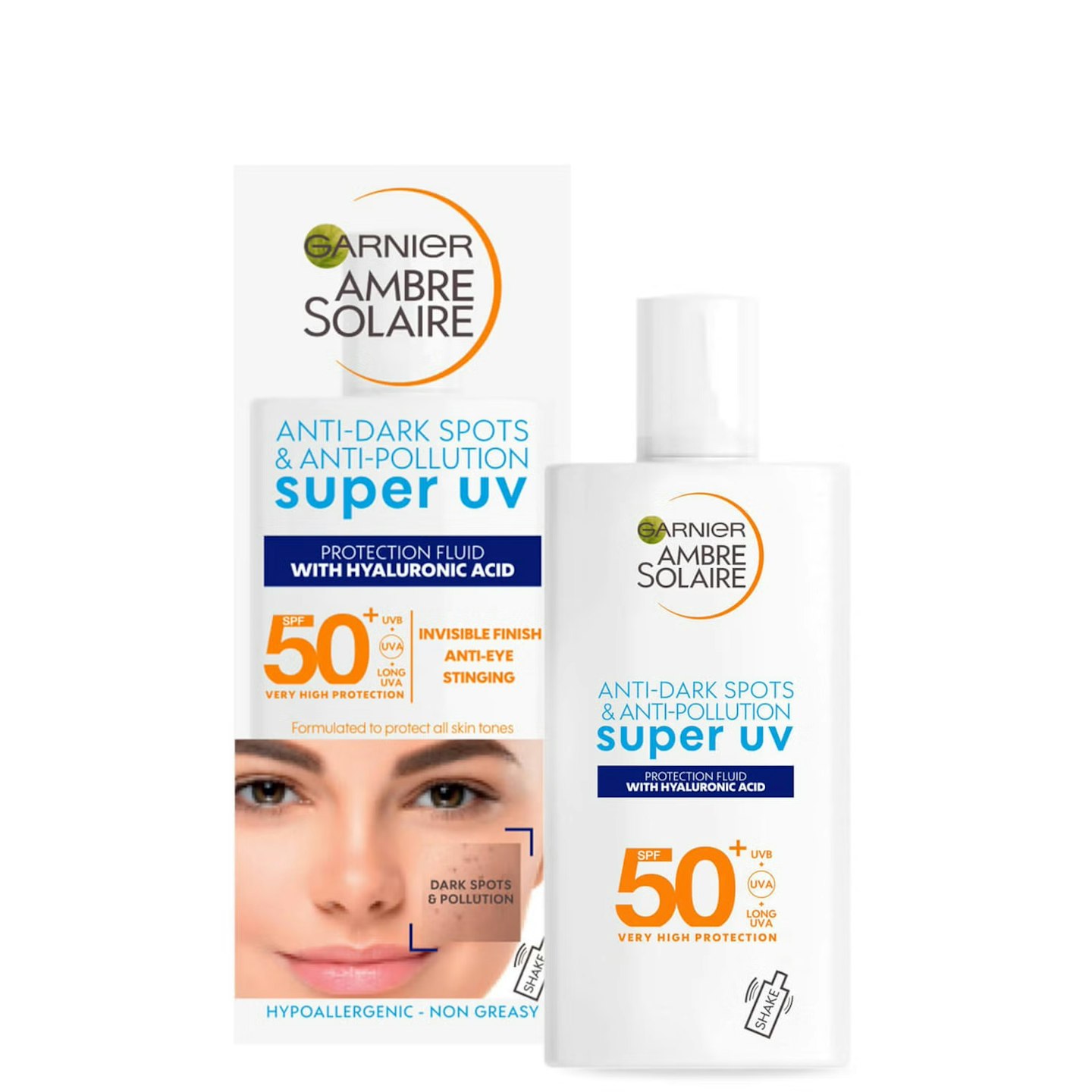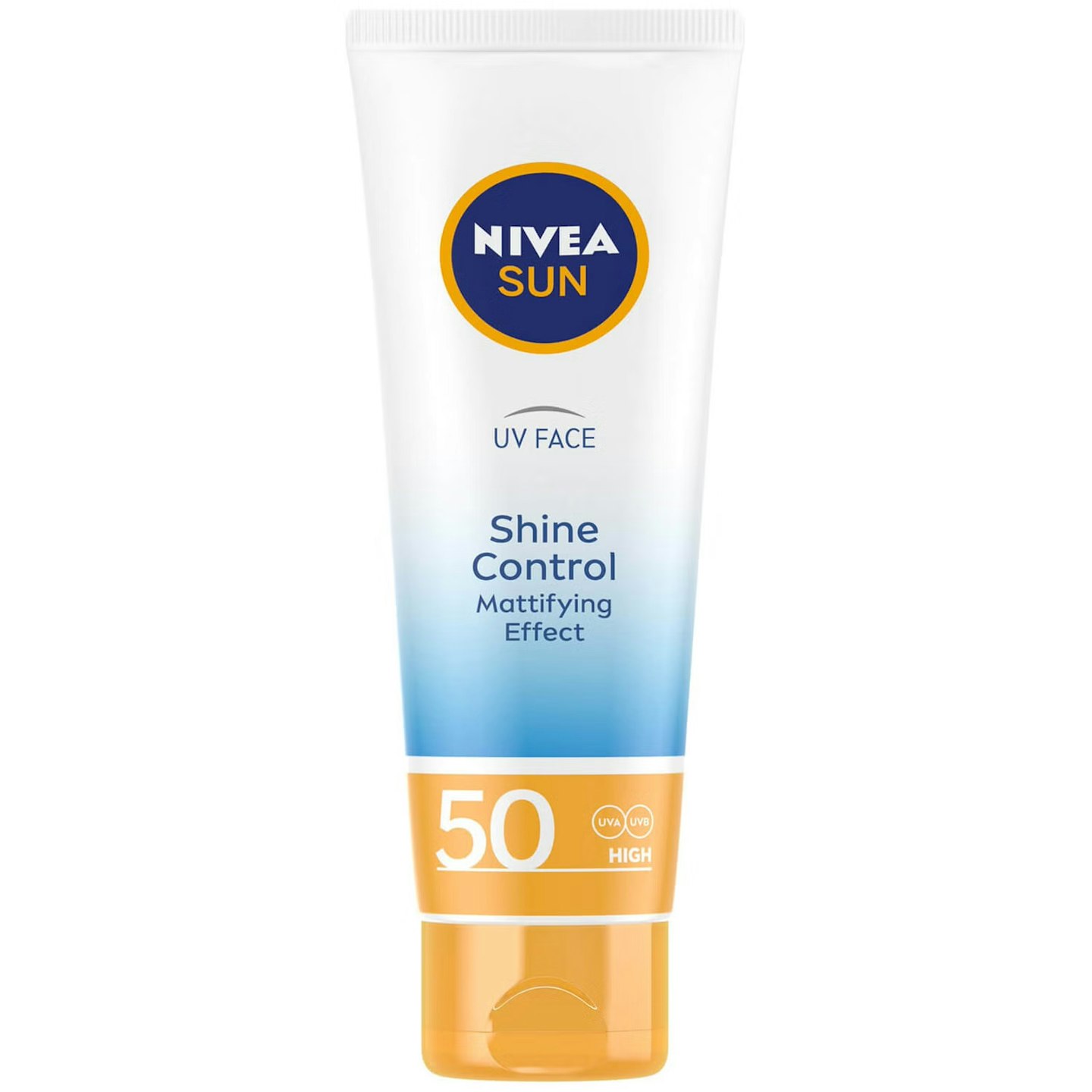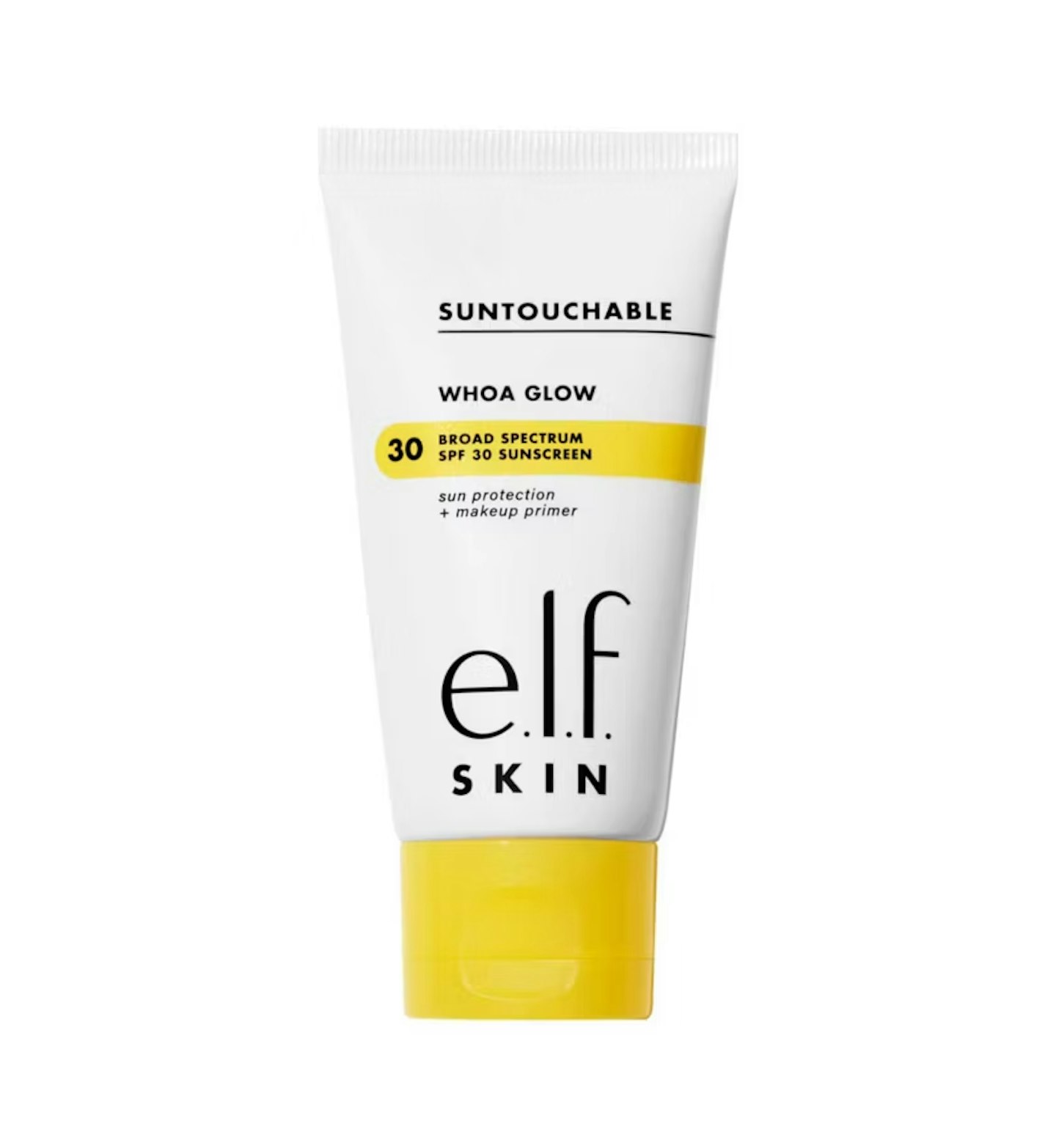Who knew the use of sunscreen could be such a contentious topic? In the last few days, the every day essential has topped news headlines for all the wrong reasons – cue the collective sighs of skin experts and dermatologists the world over. Ask any one of them and they will quickly tell you that SPF is a skincare non-negotiable, for all skin types, all skin tones, all year round. So why the controversy?
Worryingly, a new TikTok trend, is seeing a growing number of people lather their skin in tan accelerators before sitting out in the sun on days where there is a high UV index (this is a universal measurement for standard measurement of the strength of the sunburn-producing ultraviolet (UV) radiation at a particular place and time). Needless to say, this is a bad idea. 'The UV index can tell us how strong the sun’s UV rays are. The higher the UV index number, the less time it takes for your skin to become damaged by the sun. So the risk of sunburn is higher,' says Dr Sonia Khorana, dermatology expert and GP.
Despite medical warnings, the UV index trend has amassed over 58.6 million views on TikTok and Google searches have increased by 338**%** over the past few months, with much of the content failing to point out the serious dangers that come with chasing a seemingly covetable tan with this method.
Then, there is the growth of SPF misinformation with the anti-SPF movement. Tucked into a dangerous corner of TikTok that boasts 39.2 million posts and counting, you'll find this community of 'wellness gurus' intent on making us rethink the importance of sun care - which they believe has the potential to be toxic and cause cancer. They look back to our ancestral history and the healing benefits of the sun, to argue we shouldn't be protecting ourselves from it at all, but embracing it.
Influencers like Gubba Homestead have shared their views against sunscreen use. 'I don't wear sunscreen, and I never will. We blame the sun for cancer when we should be blaming our diets... Sunscreen and a poor diet will make you sick,' she claims in a video with over 1.2 million views. Likewise, TikToker Will Lamb, begins his video saying, 'I'm not going to wear sunscreen this summer and neither should you. Our grandparents didn't wear sunscreen and they were half as likely to get skin and colon cancer as we are,' he claims in a now viral video. Even those in the public eye, like Laguna Beach star Kristin Cavallari, have publicly started saying they're calling quits on SPF.
What the experts say about the anti-sunscreen movement
And yet, the experts are unwavering in their stance: sun protection is paramount. Dr Paul Banwell, leading skin cancer expert and previous head and founder of The Melanoma and Skin Cancer Unit (MASCU), says, 'I cannot emphasise enough the importance of selecting a broad spectrum sunscreen, which will protect against UVB and UVA rays. UVB rays cause redness and sunburn as well as skin cancer while UVA rays can also cause cancer as well as ageing of the skin.'
Likewise, Dr Khorana says, 'There is a lot of sunscreen misinformation online. People are saying that the sun does not cause skin cancer despite mountains of scientific evidence to the contrary and are labelling sunscreen as “toxic”.' She notes, that while the filter in chemical sunscreens called oxybenzone is an approved filter for cosmetic use, it is often accused of being an endocrine disruptor (said to affect hormones in the body) and cause cancer. 'To date, there is no evidence of systemic harm of oxybenzone, including as a potential endocrine disruptor. It is also important to remember that tests where oxybenzone was “absorbed into blood stream” were performed on rats so this cannot be applied to humans directly – people are misinterpreting scientific studies,' Dr Khorana explains.
She also debunks debates around benzene contamination. 'We know benzene causes cancer and it has been found in sunscreen, but just like any other carcinogen, like UV, the amount you get makes a huge difference to the risk - the amount in sunscreen is really low and we must not forget that “the dose makes the poison”. Benzene is something we are regularly exposed to daily – for example by burning candles, car exhaust pipes, and petrol stations.'
The expert-approved way to stay protected in the sun
As far as dermatologists are concerned sunscreen is a non-negotiable. Which is why a review of susncreens fromconsumer champions Which? sparked controversy this week. The review found three popular sunscreen lotions from Calypso Sun, Asda and TikTok favourite Bondi Sands, provide less protection than they claim. Each brand has since denied the findings and questioned the validity of the Which? tests results, by confirming all products were carefully tested and met safety standards.
A spokesperson from Bondi Sands told Grazia, 'We are aware of the test conducted by consumer organisation Which? on our SPF 50+ Fragrance Free Face Sunscreen Lotion but do not share the assessment of our product as it does not reflect our own testing in line with the strict UK cosmetic law (known as the UK Cosmetics Regulation) as well as the EU cosmetics regulations. All of our products, including Bondi Sands SPF 50+ Fragrance Free Face Sunscreen Lotion, undergo rigorous testing processes to ensure they meet and exceed industry standards and our product claims are substantiated with robust evidence. We take Which?'s claims very seriously and are working closely with them. We have requested their full report to understand their testing methods. In the meantime, we are conducting our own internal testing to reconfirm our existing results.'
Likewise, an Asda spokesperson told BBC News, 'We recently had our Asda Protect Moisturising Sun Lotion SPF 30 High retested by a leading external provider using internationally recognised testing methods. These test results confirmed that this product has a sun-protection factor of 31.5 - and therefore, we do not recognise the test results Which? has published.' Calypso Sun also told the BBC, 'We would like to thank Which? for sharing their 2024 study results - however, all our products are carefully and independently tested and have passed, in accordance with EU standards and regulations.'
While this latest review indicates the many levels of scrutiny sunscreen is currently under, it's good to know there are a few easy quality control checks you can conduct yourself before committing to any kind of sun care. Dr Khorana advises looking out for a UVA star system rating on top of an SPF rating in your sunscreen (a UVA rating is usually the PA +++ rating or PA*** rating on the sunscreen bottle), and choose a high SPF rating as well as high UVA protection (e.g. a high number of + or *). Many of the suncreens that offer up high protection factors will be broad-spectrum (meaning it protects against both types of harmful ultraviolet rays – UVA and UVB), is usually water-resistant and will have an SPF30 or higher. In response, LookFantastic is giving customers 20% off its core face and body sun care lines to make SPF affordable, accessible and to encourage more accurate conversations surrounding the dangers of sun damage on our skin.
That said, with temperatures expected to soar this week, Dr Khorana suggests arming yourself further 'with protective clothing such as a long-sleeved shirt, pants, a wide-brimmed hat, and sunglasses as sunscreen does not provide 100% protection. In fact, look for clothing with a UV protection factor (UPF).' And, when the sun's rays are at their strongest between 11am to 3pm, seek cover under shade.
Shop: The dermatologist-approved affordable SPFs

www.lookfantastic.com
Geared towards combatting sun-induced dark spots, this vitamin E and hyaluronic acid-enriched SPF boasts broad-spectrum protection and a lightweight, comfortable feel.

www.lookfantastic.com
If your skin tends to produce a shiny glare with the first appearance of any sunshine, look to this. Loaded with licorice extract and vitamin E, as well as broad spectrum UVA, UVB and High Energy Visible Light protection, it mattifies, reduces the look of excess oils and helps to encourage a stronger-looking skin barrier.

www.boots.com
Aloe vera, hyaluronic acid and squalane make this lightweight sunscreen-cum-make-up primer hybrid a treat for the skin. And the broad-spectrum SPF30 has you covered, too.
Sameeha Shaikh is Grazia UK's Beauty Writer, working across all categories to bring you insights on the latest trends, industry news and the products you need to know about, viral or not (most probably viral).
Grazia has reached out to Asda and Calypso Sun for comment

